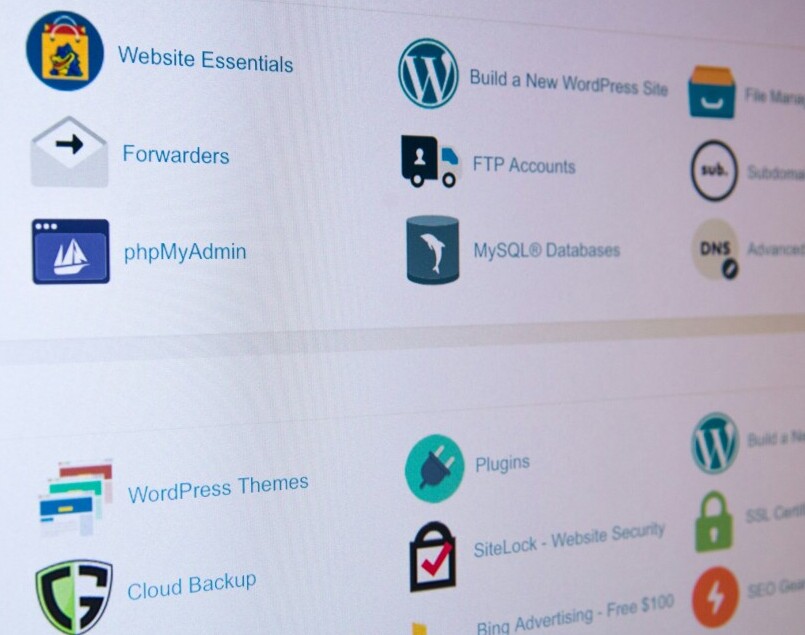
Choosing the right web hosting provider is crucial for your website’s success. With so many options, narrowing down the best choice can be overwhelming. Bluehost Vs Hostinger Vs GoDaddy Web Hosting Revieweview focuses on three popular providers and examines their features.
Each of these companies has earned a reputation in the web hosting industry, but they cater to different needs. Bluehost is known for its reliability and beginner-friendly features. Hostinger stands out with its affordable pricing and solid performance. GoDaddy is famous for its extensive domain services and user-friendly interface.
Web hosting plays a critical role in how your website performs. It affects speed, security, and uptime. Good hosting ensures that your site loads quickly and remains accessible. On the other hand, poor hosting can cause slow load times and frequent downtimes, driving visitors away.
When picking a web host, you need to consider several factors. Uptime guarantees, server speed, customer support, and pricing are key aspects. Each of these elements can impact your site’s performance and your overall experience as a website owner. By comparing Bluehost, Hostinger, and GoDaddy, you’ll get a clearer idea of which service aligns best with your needs.
Performance Analysis: Uptime, Speed, and Reliability
Uptime is crucial for any website. Frequent downtimes can be detrimental, leading to loss of visitors and potential revenue. With Bluehost, Hostinger, and GoDaddy, uptime performance varies slightly, but all aim to provide seamless connectivity.
Bluehost boasts an impressive uptime guarantee. Users report consistently high availability, making it a reliable choice. Hostinger, too, offers a strong uptime record, with monitoring tools that quickly address server issues. GoDaddy provides competitive uptime statistics but has had mixed user reviews concerning occasional downtimes.
Server speed is another key factor. A faster-loading site creates a better user experience and can improve search engine rankings. Bluehost generally performs well in speed tests, especially with its higher-tier plans. Hostinger excels in speed, particularly with its LiteSpeed servers that optimize performance. GoDaddy offers solid speed but tends to lag slightly behind the other two, especially on its more basic plans.
Reliability doesn’t stop at uptime and speed. Regular server maintenance and updates are essential. Bluehost is known for its proactive management, which includes updates and security patches. Hostinger also takes a proactive approach, often rolling out enhancements to maintain tailored performance. GoDaddy, despite its large user base, has faced criticism for slow issue resolutions and occasional lapses in service consistency.
Considering uptime, speed, and overall reliability, each provider has its strengths. Bluehost excels in consistent performance and user trust. Hostinger wins points for its speed and cost-efficiency. GoDaddy, while robust in many areas, occasionally falls short on reliability for its basic plans.
Feature Comparison: Tools, User Interface, and Extra Services

A user-friendly interface can make web hosting easier to manage, especially for beginners. Bluehost, Hostinger, and GoDaddy offer different experiences in this area. Bluehost uses the popular cPanel, which is intuitive and packed with features. Hostinger, on the other hand, has its custom control panel called hPanel, designed to be straightforward and efficient. GoDaddy also employs cPanel for some plans but offers its own custom setup for others, focusing on simplicity.
In terms of key tools and features, all three providers cover the basics but differ in their offerings. Bluehost includes a free domain name for the first year, unmetered bandwidth, and storage even with basic plans. Hostinger offers competitive pricing along with features like daily or weekly backups depending on the plan you choose. GoDaddy stands out with its extensive domain services and ease of integrating third-party applications, though some advanced features might come at an extra cost.
Extra services often make a significant difference. Bluehost provides free SSL certificates and includes email hosting in most plans. They also offer marketing credits for new users. Hostinger includes free SSL, weekly backups, and domain registration, catering well to both beginners and advanced users. GoDaddy is known for its comprehensive suite of services, including email hosting, domain registration, SSL certificates, and marketing tools, but these can increase overall costs.
Evaluating the pros and cons, Bluehost’s cPanel and free extras are excellent for beginners. Hostinger’s hPanel and competitive pricing make it a solid choice for those prioritizing budget and performance. GoDaddy’s custom offerings and extensive domain services cater well to those looking for a one-stop-shop solution.
Pricing and Customer Support: Value for Money

Analysing prices and support quality helps determine the overall value of a web hosting service. Bluehost, Hostinger, and GoDaddy all offer a range of pricing tiers to fit different budgets and needs.
Bluehost’s pricing starts at a moderate level, providing solid value for its features. Each plan includes the basics with opportunities to expand. Their higher-tier plans offer more for growing websites. Hostinger is the budget-friendly option, with very competitive prices. Despite the lower costs, the plans include essential features, making it an appealing choice for those prioritizing affordability. GoDaddy’s pricing can be slightly higher, especially when adding extra features. However, it frequently offers discounts, which can provide good deals for new users.
Customer support is where these providers show notable differences. Bluehost is renowned for its 24/7 customer service, with various channels like live chat, phone, and tickets. User experiences generally rate the support as helpful and responsive. Hostinger also offers 24/7 support via chat with a reputation for quick, effective responses. Its knowledge base is extensive, assisting users with various common issues. GoDaddy provides support through multiple channels, including phone and chat, but has mixed reviews regarding response times and issue resolutions.
Money-back guarantees provide a safety net. Bluehost offers a 30-day money-back guarantee, giving new users a buffer period to evaluate the service. Hostinger has a similar policy, allowing users to get a refund within 30 days if they’re unsatisfied. GoDaddy’s guarantee also spans 30 days for annPual plans, but it’s short for monthly plans, lasting just 48 hours.
Assessing value for money, Bluehost stands out with consistent customer support and a balanced feature set. Hostinger is the go-to for budget-conscious users seeking reliable service. GoDaddy, while pricier, offers extensive services, suitable for users needing diverse options.
Ahrefs Vs Semrush Vs Surfer SEO Review
Web Hosting Plus Affiliate Training





